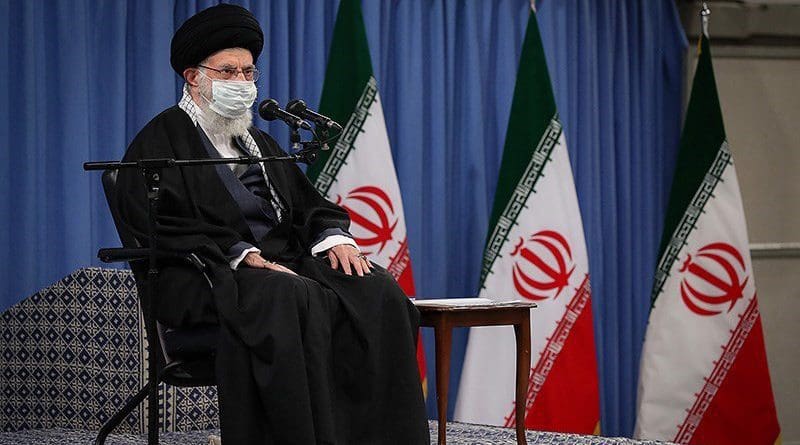Low Turnout Puts Iran Regime At Risk – OpEd
By Hamid Enayat
On June 5, coinciding with the anniversary of the death of Ruhollah Musavi Khomeini, the founder of the Islamic Republic was acknowledged by the Supreme Leader. In his speech Ali Khamenei, the current Supreme Leader of Iran, mentioned that not participating in the elections is a “grave sin.” A great sin in Islam is similar to killing another human being. “Failure to participate, with worldly consequences, may require divine accountability for generations to come!” said Khamenei. This declaration means that those who do not participate in the presidential election will face severe consequences from the government.
The Supreme Leader is trying to portray Iran’s sham and pre-determined presidential election as a sign of democracy and people’s vote. In reality, democracy and Iran’s theocracy are indeed two opposite and contradictory phenomena.
Boycott of the Elections
After the two uprisings of 2017 and 2019 that were rooted in rampant poverty and high prices, the resistance units have spread throughout Iran. They called for an election boycott and engaged in destroying symbols of the regime, such as those of Khomeini, Soleimani, and Khamenei. Since Khamenei is quite aware of the hidden potential of the oppressed people of Iran, he has opted to elevate the level of oppression by imposing more contractionary politics, internally and internationally. That is why he considers not voting to be punishable in this world and the next.
The mothers of the young people killed in the 2019 uprising have released a video clip that went viral on social media, asking all the people to boycott the elections. Their slogan was, “Whoever dips his finger in the ink to sign his ballot touches the blood of the martyrs of November 2019.”
Ashtari, the police force commander, has recently said that those who talk about non-participation will be dealt with by the authorities. The Tehran prosecutor has also threatened those promoting the non-voting idea on social media. The Chief Justice of Kurdistan Province said, “We will deal legally with people who cross the system’s red lines in cyberspace.”
Hosseini added that the judiciary monitors the behavior of all people in cyberspace and deals severely with violators. There will not have any concessions in this regard.
According to a activist close to the regime, the regime’s primary concern is “preventing the emergence of something terrible. A terrible thing that is on the way and is going to show itself in the future. If the government fails to prevent this horrible thing from happening, the established order (of the regime) will face serious challenges.”
Khamenei resorted to a contractionary policy in fear of another uprising and unite forces loyal to him in repression. He even disqualified presidential candidates, such as Larijani, the former speaker of parliament and his current adviser. Khamenei is aware of the potential unrest within the factions due to disqualifying many presidential candidates. He fears a rivalry between two candidates even more, as the Iranian people are already a powderkeg of unrest ready to be released. By doing so, Khamenei broadened the base of those who disagree with his policies, such as Ahmadinejad, a former president, and Larijani, the speaker of the parliament.
According to Setareh Sobh, a newspaper close to the regime, only 16 percent of voters in Tehran voted in the March 2017 parliamentary elections. Before the election, all candidates except those close to the Supreme Leader were disqualified. This figure is lower in other cities. With the colossal lack of transparency and the regime’s intimidation tactics, 16% may be an exaggeration.
After the pandemic, the situation has worsened. Today, the media close to the regime talks about 80% of the population being balanced between poverty and survival. Election turnout is expected to be even lower.
Khamenei, however, knows very well that when people do not come to the polls, they will choose other options to express their discontent. The regime is expecting another widespread uprising. To postpone it, he has to install Ra’isi, one of the organizers of the 1988 massacre of political prisoners in Iran, as the next president. Ra’isi’s unbounded brutality and barbaric nature are meant to scare people from any opposition while bringing all his loyal forces under one umbrella. By installing Ra’isi, Khamenei tells the world that his internal oppression and international terrorism policies will continue as usual. This method is his way of delaying his inevitable fall.

